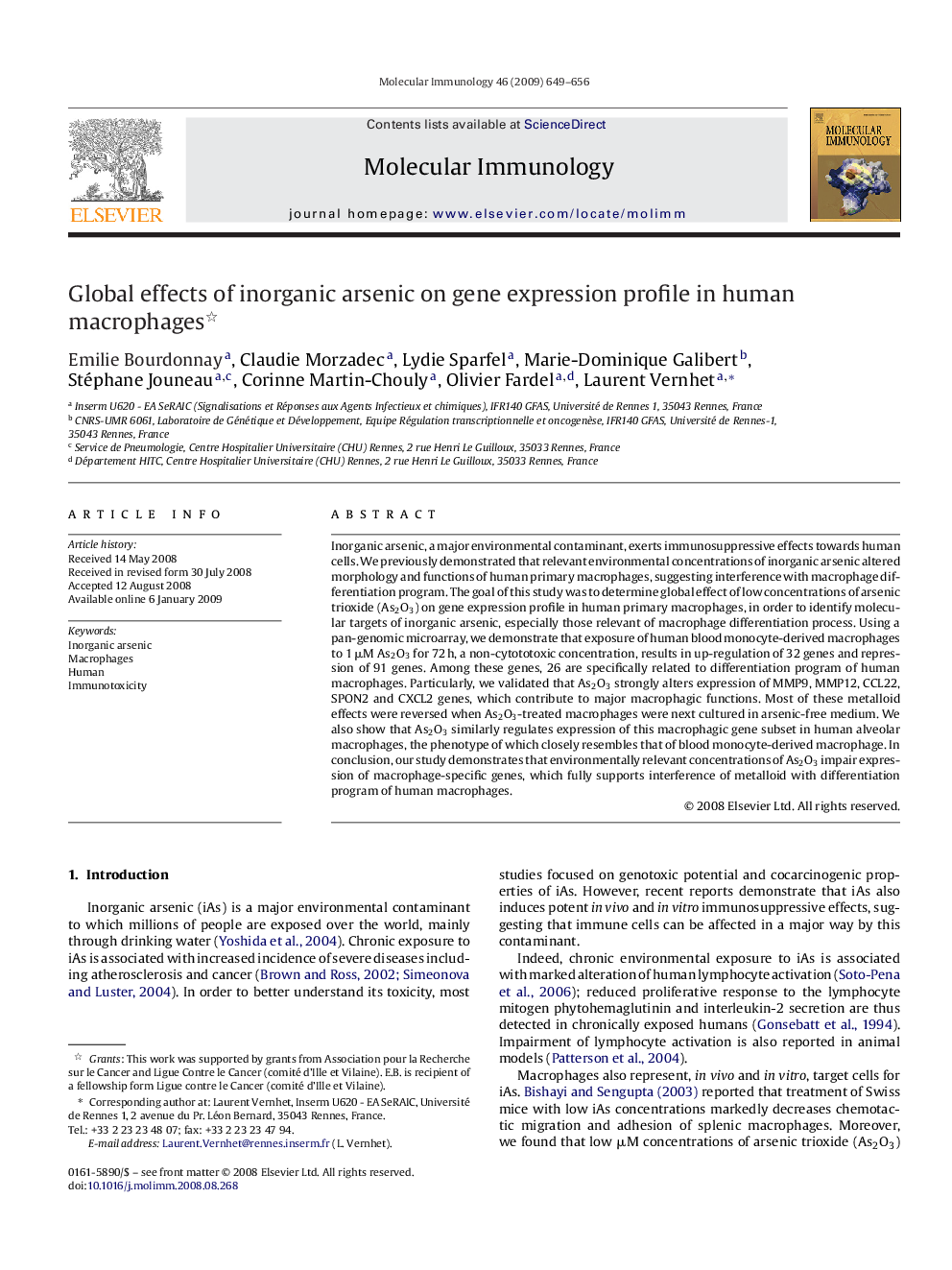| Article ID | Journal | Published Year | Pages | File Type |
|---|---|---|---|---|
| 2832339 | Molecular Immunology | 2009 | 8 Pages |
Inorganic arsenic, a major environmental contaminant, exerts immunosuppressive effects towards human cells. We previously demonstrated that relevant environmental concentrations of inorganic arsenic altered morphology and functions of human primary macrophages, suggesting interference with macrophage differentiation program. The goal of this study was to determine global effect of low concentrations of arsenic trioxide (As2O3) on gene expression profile in human primary macrophages, in order to identify molecular targets of inorganic arsenic, especially those relevant of macrophage differentiation process. Using a pan-genomic microarray, we demonstrate that exposure of human blood monocyte-derived macrophages to 1 μM As2O3 for 72 h, a non-cytototoxic concentration, results in up-regulation of 32 genes and repression of 91 genes. Among these genes, 26 are specifically related to differentiation program of human macrophages. Particularly, we validated that As2O3 strongly alters expression of MMP9, MMP12, CCL22, SPON2 and CXCL2 genes, which contribute to major macrophagic functions. Most of these metalloid effects were reversed when As2O3-treated macrophages were next cultured in arsenic-free medium. We also show that As2O3 similarly regulates expression of this macrophagic gene subset in human alveolar macrophages, the phenotype of which closely resembles that of blood monocyte-derived macrophage. In conclusion, our study demonstrates that environmentally relevant concentrations of As2O3 impair expression of macrophage-specific genes, which fully supports interference of metalloid with differentiation program of human macrophages.
